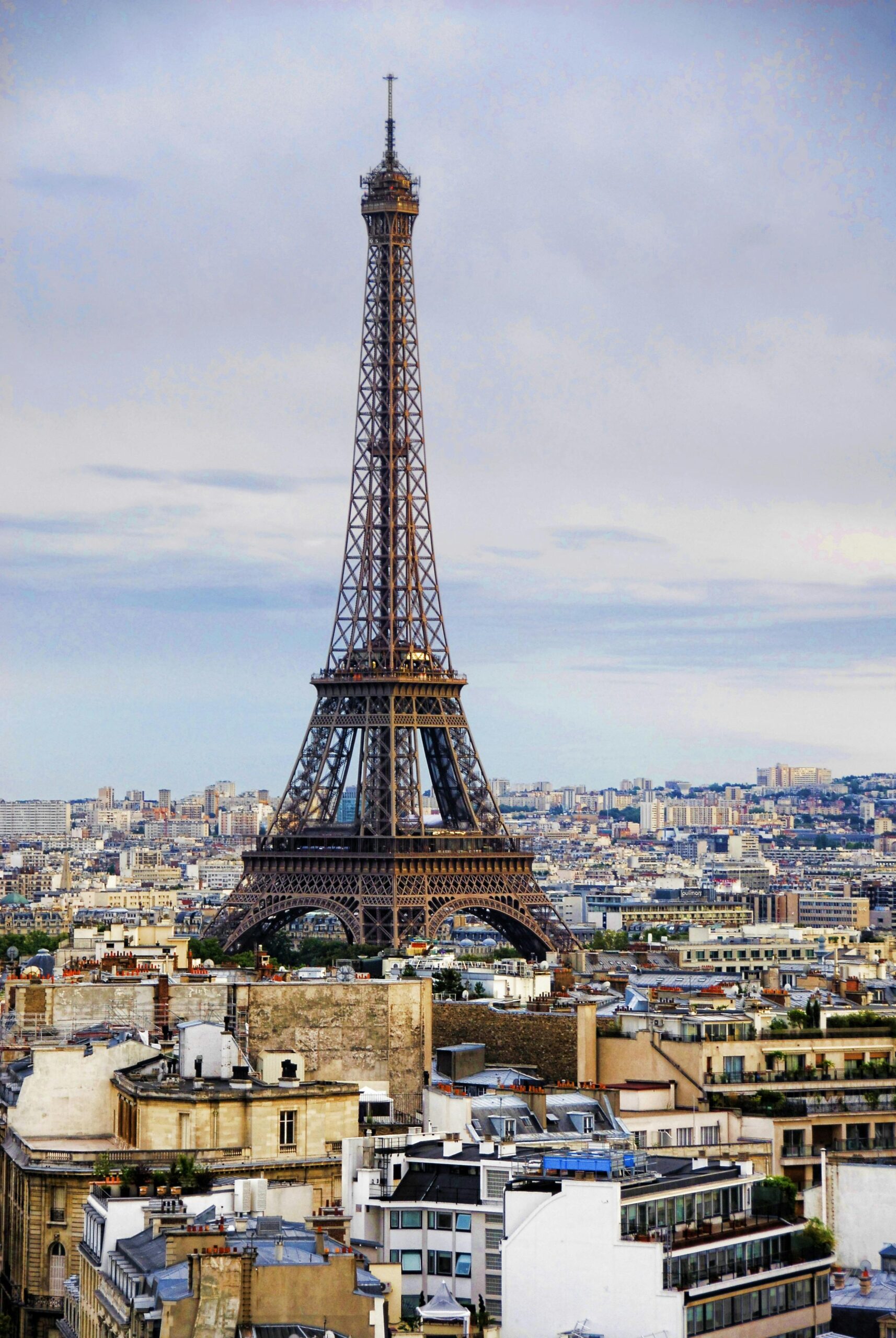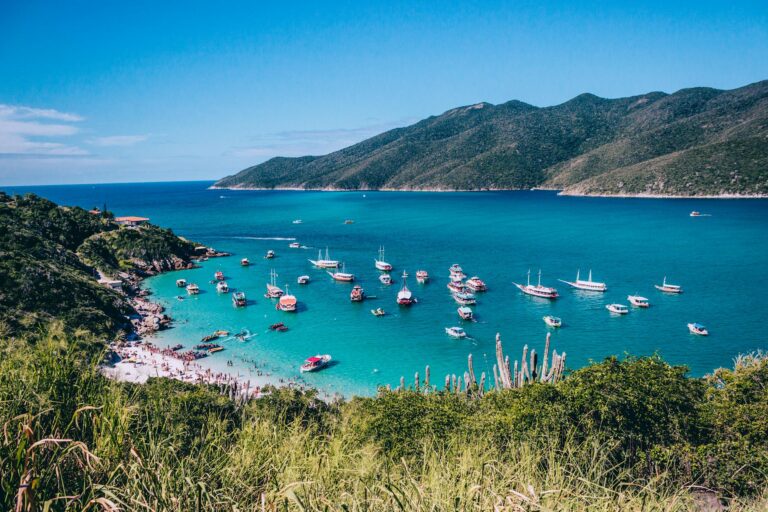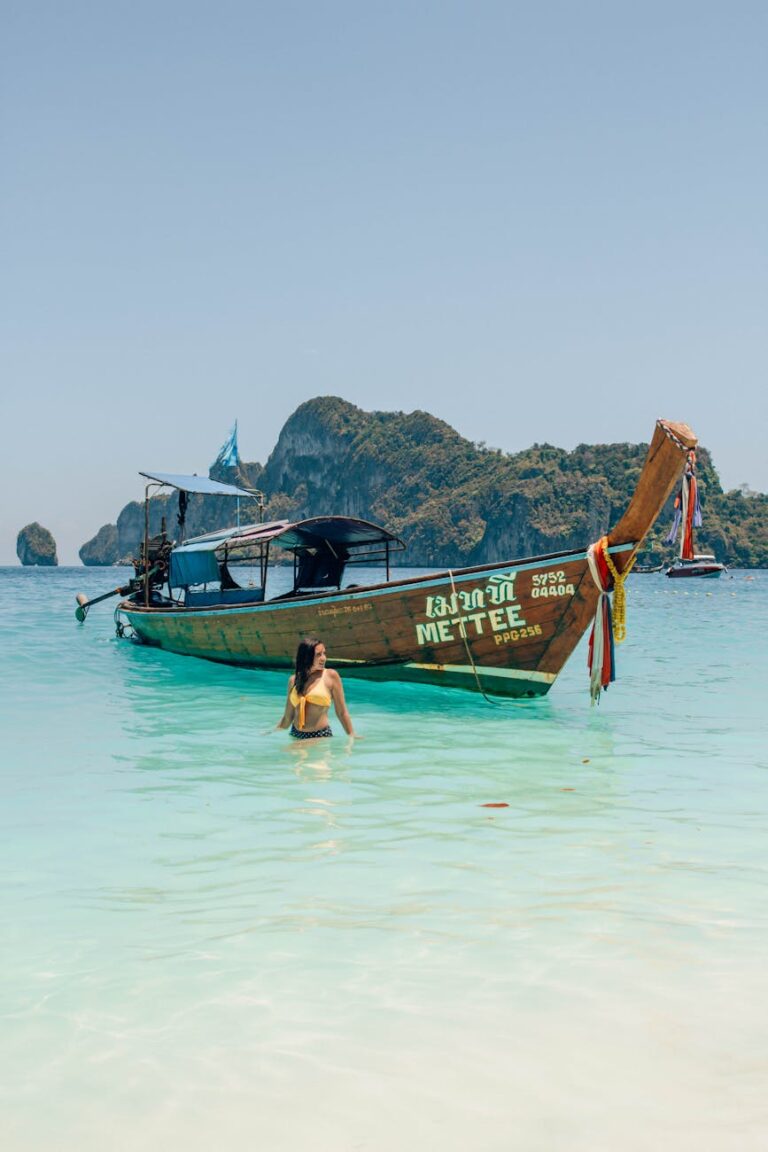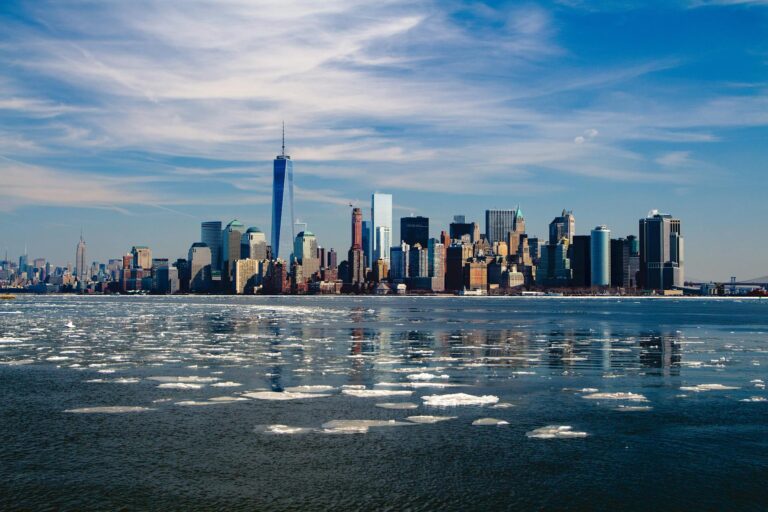Complete Guide to Visiting France
France, a country synonymous with romance, art, history, and culinary mastery, is an unparalleled destination that caters to every traveler’s dream. From the bustling streets of Paris to the tranquil lavender fields of Provence, from the rugged coasts of Brittany to the snowy peaks of the Alps, France offers a boundless array of experiences. This comprehensive guide covers every aspect of planning, executing, and enjoying your trip, ensuring your journey through France is seamless, enriching, and memorable.
1. Destination Research & Itinerary Crafting
Understanding France’s Diversity
France isn’t just Paris—it’s a tapestry of regions, each with its culture, landscape, and unique attractions:
- Île-de-France: The heart of France, home to Paris and its iconic landmarks.
- Provence-Alpes-Côte d’Azur: Lavender fields, Mediterranean beaches, charming villages.
- Bordeaux & Southwest France: Wine estates, historic architecture.
- Loire Valley: Fairytale châteaux, lush vineyards.
- Auvergne-Rhône-Alpes: Alps, ski resorts, alpine lakes.
- Normandy & Brittany: Coastlines, WW2 history, Celtic culture.
- Lyon & Rhône-Alpes: Gastronomy, silk industry, ancient ruins.
- Corsica: Mediterranean island, rugged mountains.
- French Alps: Skiing, mountaineering, hiking.
Setting Your Priorities
Before finalizing your itinerary:
- Identify Interests: Art & history, gastronomy, outdoor activities, relaxation, adventure.
- Time Allocation: Decide how many days you’ll spend in each region, considering travel time.
- Must-see Landmarks: Eiffel Tower, Louvre, Mont Saint-Michel, Palace of Versailles, D-Day beaches, Verdon Gorge.
- Hidden Gems: Local markets, small villages, off-the-beaten-path museums.
Tools & Resources
- Use Travel Blogs, Official Tourism Websites, and Guidebooks like Lonely Planet or Rick Steves.
- Map out your journey with apps such as Google Maps, Rome2rio, or TripIt.
- Create a flexible schedule but allow for spontaneous exploration.
Sample Sample Itinerary (Two-week trip):
- Days 1-3: Paris – Landmarks, museums, Seine river cruise.
- Days 4-5: Normandy – D-Day beaches, Mont Saint-Michel.
- Days 6-7: Loire Valley – Châteaux tour, vineyards.
- Days 8-9: Bordeaux & Dordogne – Wine tasting, medieval towns.
- Days 10-11: Provence – Lavender fields, Marseille, Aix-en-Provence.
- Days 12-14: French Riviera – Nice, Cannes, Antibes, Monaco.
2. Getting There (Flights & Long-Distance Transport)
International Flight options:
Major gateways include:
- Charles de Gaulle Airport (CDG) – Paris
- Orly Airport (ORY) – Paris
- Nice Côte d’Azur (NCE) – French Riviera
- Lyon-Saint Exupéry (LYS)
- Marseille Provence (MRS)
- Bordeaux–Mérignac Airport (BOD)
- Toulouse-Blagnac Airport (TLS)
Major airlines servicing these include Air France, Lufthansa, British Airways, American Airlines, and carriers from Asia and the Middle East.
Booking Tips:
- Book early, especially for peak seasons (summer, Christmas, Easter).
- Use comparison sites like Skyscanner, Kayak, or Google Flights.
- Check for airline baggage policies and potential additional fees.
- Consider flexible dates for better fares.
Getting Around Within France:
- High-Speed Trains (TGV): France’s TGV network connects Paris to Lyon, Marseille, Bordeaux, Dijon, Strasbourg, and more at speeds up to 200 mph.
- Regional Trains & TER: For local travel.
- Intercity Coaches: Budget options (FlixBus, BlaBlaBus).
- Car Rentals: Ideal for rural regions, wine tours, and scenic drives (drive on the right side). Be aware of parking restrictions and tolls.
- Domestic Flights: Short-haul flights can save time, e.g., Paris to Nice or Lyon.
Travel Passes and Tickets:
- Eurail Pass: For flexible train travel if exploring multiple countries.
- France Rail Pass: Affordable for extensive train travel.
- Advance Booking: Reserve seats for high-speed and popular routes.
3. Accommodation
Options range from luxury hotels to budget hostels and charming rentals:
Luxury & Boutique Hotels:
- Known chains: Four Seasons, Hotel Plaza Athénée, Le Meurice.
- Boutique options: Typically in historic buildings, personalized service.
Mid-range Hotels & B&Bs:
- Use Booking.com, Hotels.com, or Expedia for reviews and reservations.
- Look for properties with breakfast included and free Wi-Fi.
Vacation Rentals & Apartments:
- Platforms like Airbnb, Vrbo offer a wide variety of stays from city apartments to countryside cottages.
- Ideal for longer stays or families seeking space and kitchen facilities.
Hostels & Budget Options:
- Hostelling International, youth hostels, and budget hotels give affordable options, especially in cities.
Historic Inns & Châteaux:
- For a special experience, stay at historic châteaux or converted castles.
Booking Tips:
- Book well in advance during high season.
- Read reviews carefully to gauge cleanliness and service.
- Consider location—proximity to transportation hubs often saves time.
4. Budgeting
Estimating Costs:
- Flights: 500–500–1,200 round-trip depending on origin and season.
- Accommodation: Budget hostels (20–20–50/night), mid-range hotels (100–100–200), luxury ($300+).
- Food: Casual cafés (10–10–20/meal), fine dining ($50+).
- Transport: Metro day passes (~$10), train tickets, car rentals.
- Attractions: Museum entries (10–10–20), guided tours, special exhibits.
- Shopping: Souvenirs, fashion, local foods.
Money-saving Tips:
- Use City Travel Cards for unlimited public transit and free or discounted entry to attractions.
- Take advantage of free museum days or combined passes.
- Shop at markets and produce stalls.
- Dine at local bistros or grab crêpes and sandwiches for quick, affordable meals.
Currency & Payments:
- France uses the Euro (€).
- Credit/debit cards widely accepted.
- Keep some cash for small vendors and tips.
5. Packing, Documents & Health Prep
Packing Checklist:
- Clothing: Layered wardrobe (weather varies by season). Include waterproof jacket, comfortable walking shoes, formal attire if dining fine.
- Adapters: Type C/E plugs (230V). Portable chargers.
- Essentials: Travel-sized toiletries, medications, first aid kit.
- Documents:
- Passport (with minimum 6 months validity).
- Visa (if required; many nationalities are visa-free for short stays).
- Travel insurance info.
- Copies of reservations, IDs, and emergency contacts.
- European Health Insurance Card (EHIC) or travel insurance with medical cover.
Health & Safety:
- Stay updated on vaccinations and health advisories.
- Carry prescriptions and a small supply of medications.
- Keep hand sanitizer and masks handy.
- Know the locations of nearby hospitals or clinics.
6. Food, Drink & Shopping
Cuisine Highlights:
- Paris: Croissants, macarons, escargots, foie gras, steak frites.
- Southern France: Bouillabaisse, ratatouille, tapenade.
- Bordeaux & Burgundy: Renowned wines, cheeses.
- Alsace: Flammkuchen, beer.
- Normandy: Camembert, cider.
- Provence: Olive oil, herbs de Provence.
Markets & Foodie Experiences:
- Visit markets such as Marché des Enfants Rouges in Paris, Cours Saleya in Nice, or Hall de la Major in Marseille.
- Participate in cooking classes to learn regional dishes.
- Indulge in pâtisseries, chocolates, and artisanal bread.
Shopping Destinations:
- Fashion & Couture: Parisian boutiques, Galeries Lafayette, Le Marais district.
- Art & Antiques: Saint-Ouen Flea Market, small galleries.
- Local Crafts & Food Products: Aix-en-Provence lavender, Alsace pottery, Champagne.
7. Language & Basic Interaction
French phrases to learn:
- Bonjour (Hello), Au revoir (Goodbye), Merci (Thank you)
- S’il vous plaît (Please)
- Excusez-moi (Excuse me)
- Parlez-vous anglais? (Do you speak English?)
- Où est…? (Where is…?)
- Combien ça coûte? (How much?)
Cultural Tip:
- Use polite greetings before asking questions.
- Be patient with language differences—French appreciate effort.
8. Customs & Etiquette
- Greetings: Light cheek-kissing (la bise) among acquaintances.
- Dining: Keep hands on the table, say “Bon appétit”.
- Tipping: Service charge included in bills; leave small tip (~5-10%) for excellent service.
- Dress code: Elegant and neat—many places expect smart casual.
- Punctuality: Be punctual for reservations and appointments.
Respect local customs, and when in doubt, observe local residents.
9. Activities & Sightseeing
Must-See Landmarks:
- Eiffel Tower, Louvre Museum, Notre-Dame Cathedral, Sacré-Cœur (Paris)
- Palace of Versailles
- Mont Saint-Michel
- Château de Chambord and Château de Chenonceau (Loire)
- D-Day beaches at Omaha and Utah
- Verdon Gorge and Provence’s lavender fields
- French Riviera beaches and glamorous resorts
Outdoor & Adventure Activities:
- Hiking in the Alps or Pyrenees.
- Skiing and snowboarding in winter.
- Cycling tours in Normandy or Provence.
- Sailing, snorkeling, and water sports along the Côte d’Azur.
Cultural Experiences:
- Attend opera or ballet performances.
- Visit art galleries and artist studios.
- Explore historic neighborhoods like Le Marais or Old Lyon.
Tips:
- Book tickets online for popular sites.
- Use audio guides or join guided tours for richer understanding.
10. Local Events & Festivals
Major Festivals:
- Bastille Day (July 14): Parades, fireworks.
- Paris Fashion Week (February & September): For fashion enthusiasts.
- Cannes Film Festival (May): Glamorous red carpet events.
- Nice Carnival (February): Parades, masks, festivities.
- Bordeaux Wine Festival (June): Tastings, music, wine tours.
- Normandy D-Day Anniversary (June 6): Commemorative events.
- Cherry Blossom Festivals, Harvest Festivals: Seasonal celebrations across regions.
Check regional tourism websites for local festivals and cultural events.
11. Local Transportation & Navigation
In Cities:
- Metro systems in Paris, Lyon, Marseille.
- Buses, trams, and bike-sharing schemes.
- Taxi and Rideshare apps like Uber are available in major cities.
In Rural Areas:
- Renting a car or bike.
- Local buses and seasonal ferries.
Navigation Apps:
- Google Maps, Citymapper, Moovit for transit directions.
- Offline maps (downloaded in advance).
Travel Tips:
- Validate tickets before boarding.
- Be aware of pickpocketing, especially in crowded transit.
- Respect local traffic rules.
12. Connectivity
Wi-Fi & Internet:
- Widely available in cafes, hotels, airports.
- Buy a local SIM card for data; options include Orange, SFR, Bouygues Telecom.
- Portable Wi-Fi routers are also available for rent.
Apps to Download:
- Google Maps for navigation.
- Duolingo or Google Translate for language aid.
- City-specific transit apps.
- Currency converters and phrasebooks.
13. Safety & Emergency Assistance
General Safety:
- France is generally safe but stay alert in crowded areas.
- Watch out for pickpockets, especially in tourist hotspots and on public transport.
- Keep valuables secure.
Emergency Numbers:
- 112: European-wide emergency number.
- 15: Medical emergencies.
- 17: Police.
- 18: Fire brigade.
Health & Support:
- Medical facilities are high-quality in cities.
- Carry health insurance details.
- Know the address of the nearest hospital.
14. Health & Wellness On-the-Go
- Stay hydrated, especially during summer or outdoor activities.
- Use sunscreen and hats.
- Carry pain relievers, allergy medications, and any personal prescriptions.
- Look out for pharmacies marked with a green cross.
Wellness: Many cities have spas, wellness centers, and gyms for relaxing after sightseeing.
15. Accessibility
France has made strides toward accessibility, but some historic sites may pose challenges:
- Wheelchair accessible: Major museums, hotels, and public transport.
- Services: Contact accommodations in advance for assistance.
- Transport: Many train stations have ramps and elevators.
Pro tip: Always check in advance with venues for accessibility features.
16. Tailored Travel Styles
- Solo Travelers: Join guided city walks, language classes, or food tours.
- Family: Plan visits to amusement parks (Disneyland Paris), aquariums, zoos.
- Adventure & Outdoors: Skiing in the Alps, kayaking in Dordogne, cycling through vineyards.
- Luxury Seekers: Book private tours, chauffeur-driven cars, or stay in castles.
Customize your trip to match your travel personality for maximum enjoyment.
17. Sustainable & Responsible Travel
- Reduce plastic use; carry reusable bottles, bags.
- Support eco-friendly accommodations.
- Use public transportation over taxis or rental cars.
- Respect wildlife and natural landscapes.
- Shop locally to support small artisans and farmers.
France is committed to sustainability; participate responsibly.
18. Connecting with Others
- Join local tours, cooking classes, or art workshops.
- Stay in hostels or social accommodations.
- Engage with locals at markets and cafés.
- Use social media or forums (e.g., Reddit, Facebook groups) to connect with fellow travelers.
19. Deeper Learning & Enrichment
- Enroll in French language courses.
- Take cooking classes in regional cuisines.
- Participate in painting, photography, or music workshops.
- Visit lesser-known museums or historical sites for an authentic experience.
These activities deepen your cultural understanding and make your trip more meaningful.
20. Travel Entertainment
- Download movies, series, or e-books for transit.
- Listen to French music playlists or podcasts.
- Bring travel journals or sketchbooks.
- Play language learning apps to practice during downtime.
- Explore local radio stations or streaming platforms for cultural immersion.
Final Tips for a Successful Trip
- Plan but stay flexible: Allow room for spontaneous adventures.
- Respect local customs: Be polite, dress appropriately.
- Learn a few phrases: Even basic French can elevate interactions.
- Stay safe: Keep valuables secure, stay aware of your surroundings.
- Capture moments: Take photos but also savor the experience.
- Enjoy everything: From the bustling markets to quiet countryside, France’s charm lies in its authentic moments.
Conclusion
Traveling in France offers an extraordinary blend of history, art, cuisine, and natural beauty. With detailed planning—from choosing your destinations, booking transportation and accommodation, budgeting, to understanding local customs—you can navigate the country with confidence. Embrace the local culture, connect with the vibrant communities, and allow yourself to be immersed in the timeless allure of France. Bon voyage!





